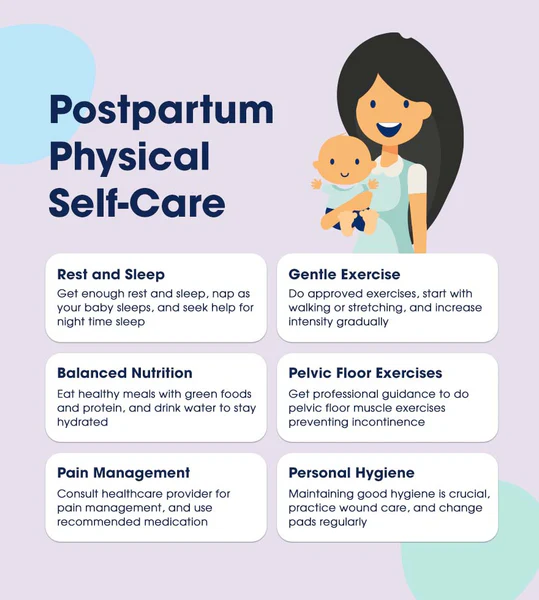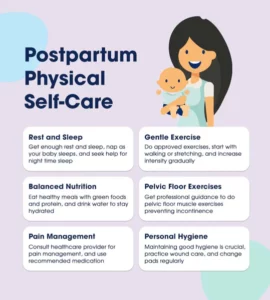Understanding Postpartum Needs:The Importance of Postpartum Confinement
Throughout history, various cultures have recognized the significance of a recovery period for new mothers following childbirth. Often viewed as essential for ensuring a mother’s long-term health, this period—commonly referred to as postpartum confinement—emphasizes rest, nutrition, and support. Many societies, particularly in Asia—including regions in China, India, Malaysia, and Morocco—believe that the first 30 to 40 days postpartum are critical for both the mother and her newborn. This cultural emphasis on postpartum care serves as a reminder of the diverse ways societies care for mothers during such a transformative time.
Traditional practices differ across cultures but generally focus on nurturing the mother through warmth, nutritious meals, and minimizing social obligations. These practices can sometimes clash with contemporary life, as many mothers feel the need to resume their pre-baby routines quickly. However, the principles of postpartum confinement resonate with a growing number of new mothers seeking to find a balance between tradition and modernity.
Understanding Postpartum Needs Through Traditional Chinese Medicine
In Traditional Chinese Medicine (TCM), the understanding of postpartum care runs deep. TCM posits that a mother experiences a significant “empty” state postpartum, where her body needs to heal and restore balance. It is believed that exposure to cold during this vulnerable time may lead to lasting health consequences. Therefore, the recommendations for new mothers often include staying warm, avoiding cold food and drinks, and refraining from bathing or washing hair. In more traditional contexts, mothers might even be discouraged from engaging in physical activities or distractions to ensure their focus remains on recovery and rest.
This stricter adherence to guidelines may not be feasible for everyone today, but the underlying principle—valuing the postpartum recovery period—remains relevant. It’s essential to adapt the confinement practices to fit contemporary lifestyles while still emphasizing self-care and healing.
As societal expectations push mothers toward a “bounce back” mentality, the traditional practices of postpartum confinement can appear antiquated. However, postpartum expert Leila Armour, founder of Village for Mama, advocates for integrating these age-old customs into modern settings. By offering services tailored to new mothers, such as meal preparation and household assistance, Armour creates an environment that allows mothers to focus on healing and bonding with their newborns.
Instead of adhering strictly to traditional practices, new mothers can assemble a “modern confinement” that resonates with their unique circumstances. For example, planning various supportive measures—like hiring a postpartum doula or enlisting friends and family to help—can provide the necessary resources for recovery without falling back into the pressure of immediately returning to “normal.”
The Value of Personalized Recovery Plans
Creating a personalized approach to postpartum confinement can empower mothers in their recovery journey. By taking elements from traditional practices—such as a designated recovery timeframe and a focus on nutrition—women can construct a recovery plan that feels both achievable and supportive. For instance, dedicating a more flexible recovery window that aligns with family schedules can alleviate pressure while still allowing moms to focus on self-care.
Meal planning also plays a crucial role in a successful postpartum recovery. Preparing nourishing dishes in advance can ease the stress of daily cooking. Furthermore, meals that are easily freezable, such as soups and stews, can ensure that mothers have access to nutrient-rich foods without the added burden of daily prep.
Another critical aspect of a successful postpartum experience is acknowledging the importance of help from others. While traditional customs often discourage visitors during confinement, a modern interpretation could emphasize inviting supportive friends or family members to assist with both emotional and physical support. Learning to delegate tasks—whether it’s household chores or caring for older siblings—can relieve some of the burdens new mothers face.
Engaging with trained professionals, such as postpartum doulas and lactation consultants who come to your home, can significantly enhance recovery experiences. They can provide essential education and emotional support that helps new mothers navigate this period of adjustment.
Postpartum confinement offers a rich tapestry of practices emphasizing rest and recovery. While some traditions may not seamlessly fit into modern life, the core principles—prioritizing maternal health, nurturing support systems, and ensuring adequate nourishment—remain incredibly relevant. As society begins to recognize the multiple aspects of motherhood, valuing the postpartum period can lead to healthier outcomes for mothers and their children alike. Embracing a culture of care and setting realistic expectations will foster a nurturing environment conducive to recovery, making the journey into motherhood a genuinely supportive experience.


